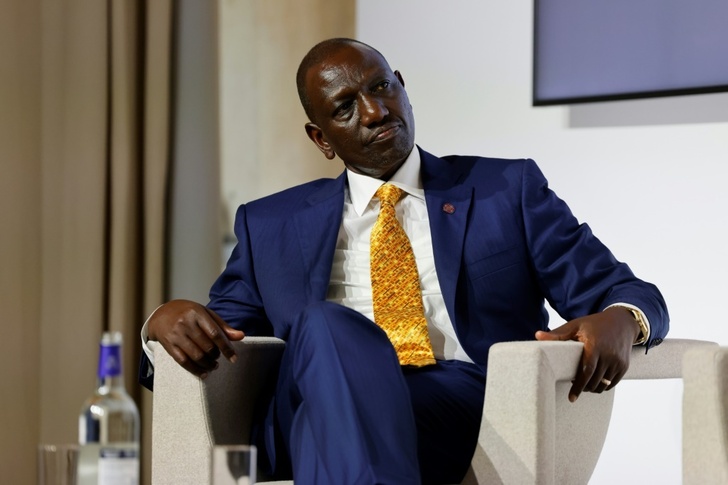Kenya's president, his deputy and other state officials are set to receive pay rises despite citizens facing deep economic hardship and higher taxes, according to a government document seen by AFP Friday.
They are due to get a 14 percent salary hike over a two-year period, Kenya's Salaries and Remuneration Commission (SRC) said in a proposal, which will raise President William Ruto's gross monthly salary to 1,546,875 shillings ($11,000).
Members of parliament will earn a basic salary of 769,201 shillings ($5,400) topped up with hefty extras such as a $54,000 bonus to buy a car and $2,600 per month to maintain the vehicle.
Kenya's minimum monthly wage is 15,120 shillings ($107).
The salary increases come at a time when fuel prices in the East African powerhouse were set to rise to record highs after the government doubled tax on petroleum products to 16 percent.
Any increase in fuel prices will have a ripple effect in a country hamstrung by a cost of living crisis, with overall inflation at eight percent in May, while food inflation was at 10.2 percent.
The salary increases will go into effect on Saturday, but the measures could be overturned pending a public discussion.
No date has been set for the discussion, but Kenyans have protested online about the pay hikes, accusing politicians of seeking office for personal gain at the expense of the poor.
Ruto himself weighed in on the issue on Friday, urging the SRC to reconsider the hikes for top government officials.
"We need to make sure that the gap between the person paid the least and the person paid the most is not too big," he said.
- Calls for boycott -
Ruto on Monday signed into law a tax package introducing a raft of hikes, seeking to fill his government's depleted coffers and repair the heavily indebted economy.
One of the most contentious provisions is a 1.5 percent levy on the salaries of all tax-paying Kenyans that will be matched by employers to fund an affordable housing programme.
But a high court in Nairobi on Friday suspended the implementation of the tax proposals hours before they come into effect pending the hearing of a case filed by a senator.
Opposition leader Raila Odinga has asked his supporters to boycott the taxes, rallying them to carpool or walk whenever possible.
Earlier this year, the opposition staged several protests over the economic crisis which degenerated sometimes into deadly street clashes between police and demonstrators.
Ruto came to power last year on a promise to revive the economy and put money in the pockets of the downtrodden.
But one of his first acts was to slash food and fuel subsidies introduced by his predecessor Uhuru Kenyatta.
Kenya is one of the most dynamic economies in East Africa but many are suffering financial hardship with about a third of the population living in poverty.
The country is sitting on a public debt mountain of almost $70 billion or about 67 percent of gross domestic product (GDP), and repayment costs have jumped as the shilling trades at record lows of around 140 shillings against the dollar.
The court case against the new taxes will be heard on Wednesday.
ho/amu/giv
© Agence France-Presse
Your content is great. However, if any of the content contained herein violates any rights of yours, including those of copyright, please contact us immediately by e-mail at media[@]kissrpr.com.
Source: Story.KISSPR.com

